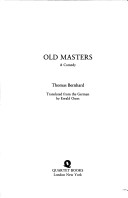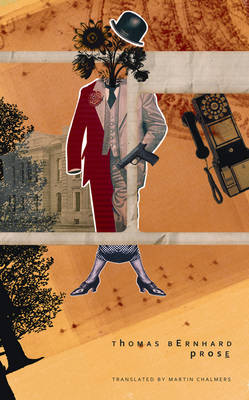The German List - (Seagull Titles CHUP)
5 total works
art. With characteristically acerbic wit, Bernhard exposes the pretensions and aspirations of humanity in a novel at once pessimistic and strangely exhilarating.
"Bernhard's . . . most enjoyable novel."--Robert Craft, New York Review of Books.
"Bernhard is one of the masters of contemporary European fiction."--George Steiner
One night in the middle of winter, as deep snow covers the mountains and forests, a doctor is crossing the ridge in Austria from Traich to Föding to see a patient. He stumbles over a body in the darkness and fears it is a corpse. But it’s not a corpse at all. In fact, it’s wooden-legged Victor Halfwit, collapsed, but still very much alive. So begins this simultaneously absurd and tragic tale by celebrated Austrian playwright, novelist, and poet Thomas Bernhard. Combining the darkly comic voice and vision of Bernhard with the lush and beautiful collages of Indian designer Sunandini Banerjee, Victor Halfwit is a unique and collectible artist’s book. Illustrated in color throughout, this edition imaginatively presents Bernhard’s fable in a distinctive and unconventional style. It is the perfect gift book that will be cherished by fans of Bernhard’s other works and will inspire new interest among visual artists.
Bernhard’s work can seem off-putting on first acquaintance, as he suffers no fools and offers no hand to assist the unwary reader. But those who make the effort to engage with Bernhard on his own uncompromising terms will discover a writer with powerful comic gifts, penetrating insight into the failings and delusions of modern life, and an unstinting desire to tell the whole, unvarnished, unwelcome truth. Start here, readers; the rewards are great.
For all of these reasons, Bernhard's Collected Poems, translated into English for the first time by James Reidel, is a key to understanding Bernhard's irascible black comedy found in virtually all of his writings even down to his last will and testament. There is much to be found in these pages for Bernhard fans of every stripe.




